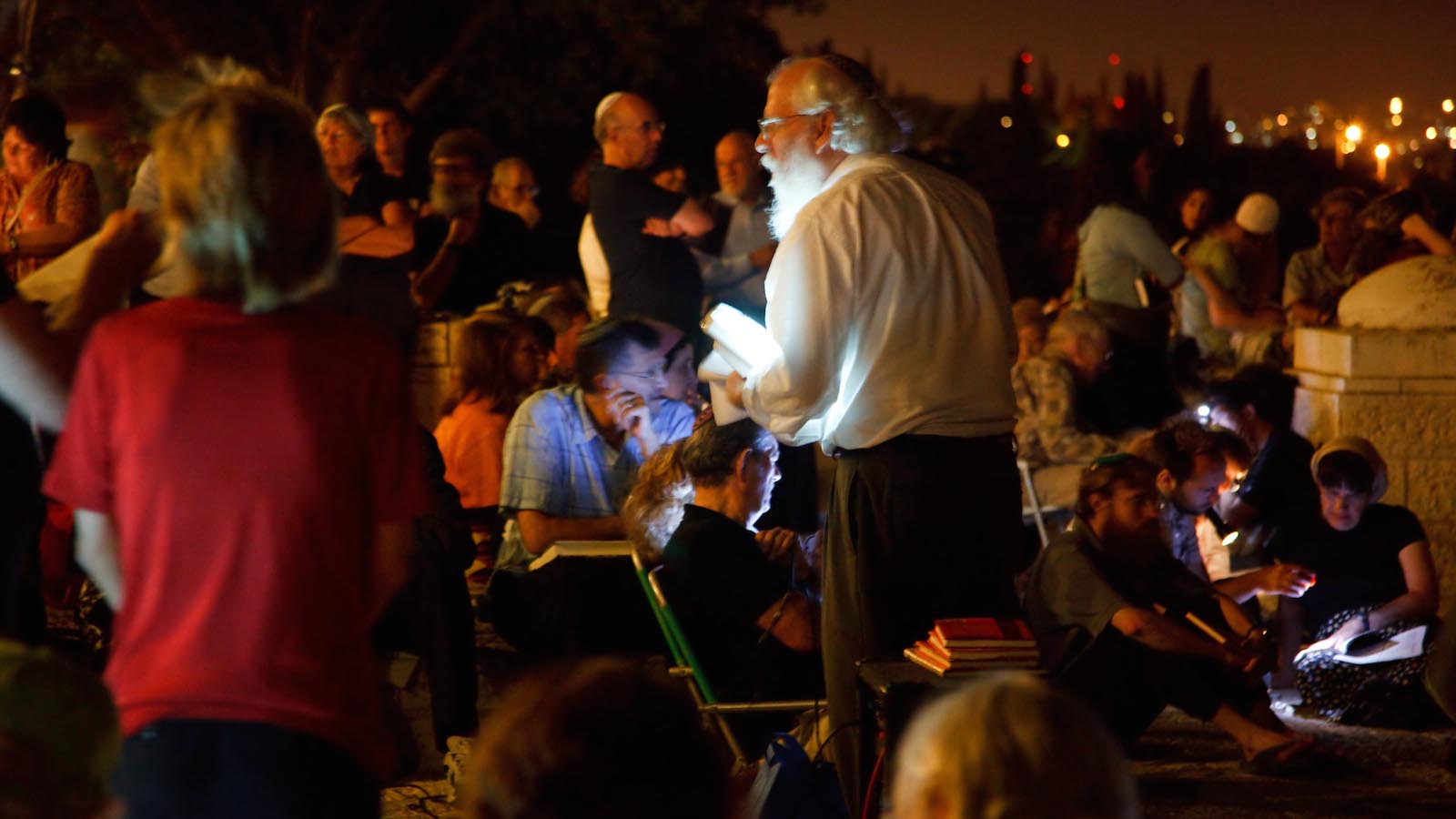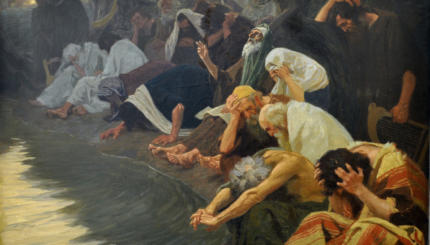Commentary on Parashat Devarim, Deuteronomy 1:1 - 3:22
The haftarah selection is from Isaiah 1:1-27.
Tisha B’Av, the saddest day on the Jewish calendar, marks the anniversary of the destruction of the Temple. On the Shabbat before Tisha B’Av, which always coincides with Parashat Devarim, Jews read a haftarah from the beginning of the Book of Isaiah. The Shabbat before Tisha B’Av is often called Shabbat Hazon, named after the first word of the haftarah. Unlike Jeremiah and Ezekiel, who both experienced vivid visions as their initiation into prophecy, Isaiah does not report having a visions, he simply begins by condemning the people of Judah and Jerusalem for their poor behavior.
He reminds the people that God has been like a father to them, and instead of being grateful and respectful for all that He has done for them, the people continue to rebel and spurn God’s authority. When they sin, they are punished. Yet instead of learning from their mistakes, the people continue to do wrong. Even the land they live on is penalized for their insidious behavior.
Isaiah tells the people that God no longer has any interest in the sacrifices that the people have been bringing to Him. Though they obediently gather in the Temple on holidays and at the beginning of every month, their lack of social justice nullifies any reward they may get for offering gifts to God.
As the haftarah progresses, Isaiah’s rage wanes slightly. He tells the people to change their behavior–“Learn to do good, devote yourselves to justice, aid the wronged, uphold the rights of the orphan, defend the cause of the widow” (1:17)–and promises that they will be rewarded with a bountiful harvest.
In the closing section of the haftarah, Isaiah laments the downfall of Judah and Jerusalem, the destitution of Zion, and the injustice that is rampant. But Isaiah promises that God’s anger will be abated, and there is a hint of hope for the future: “Zion shall be saved in the judgment, her repentant ones, in the retribution.” (1:27)
Connection to the Calendar
On Tisha B’Av Jewish communities around the world sit on the floor and weep for the destruction of the Temple. The book of Lamentations, Eicha, records the tragedy of Zion’s destruction, and it is chanted in a mournful tune.
Though most haftarot are chanted in a special melody for haftarot, it is traditional to read most or all of the haftarah for Shabbat Hazon in the same tune used for Eicha. This highlights the themes that are similar in the haftarah and the Book of Lamentations, and the use of the word eicha in the haftarah (“Alas [eicha] she has become a harlot, the faithful city”).
Shabbat
Pronounced: shuh-BAHT or shah-BAHT, Origin: Hebrew, the Sabbath, from sundown Friday to sundown Saturday.



